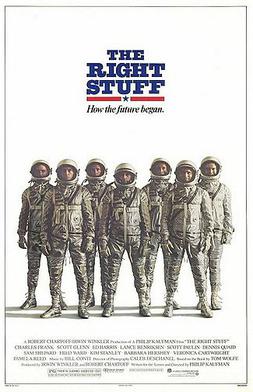 |
| Keith David, Richard Dysart, T.K. Carter, Richard Masur, Donald Moffat, and Kurt Russell in The Thing |
Dr. Blair: Wilford Brimley
Nauls: T.K. Carter
Palmer: David Clennon
Childs: Keith David
Dr. Copper: Richard Dysart
Vance Norris: Charles Hallahan
George Bennings: Peter Maloney
Clark: Richard Masur
Garry: Donald Moffat
Fuchs: Joel Polis
Windows: Thomas G. Waites
Director: John Carpenter
Screenplay: Bill Lancaster
Based on a story by John W. Campbell Jr.
Cinematography: Dean Cundey
Production design: John J. Lloyd
Creature design: Rob Bottin
Music: Ennio Morricone
John Carpenter's The Thing is one of those movies that have undergone radical re-evaluation over the years since it was released to mediocre box office and mostly scathing reviews. In the New York Times, for example, Vincent Canby panned it as "foolish, depressing, overproduced" and "instant junk." Today, however, it's regarded as a classic of the horror sci-fi genre and has an 83% "fresh" ranking on Rotten Tomatoes, with a whopping 92% audience score. My own evaluation would fall somewhere in between: The Thing does what it sets out to, i.e. scare us, with efficiency, but unlike the films to which it is often compared -- the Howard Hawks-produced The Thing From Another World (Christian Nyby, 1951), which was based on the same short story, and the more recent predecessor in the genre, Alien (Ridley Scott, 1979) -- it lacks heart. The Thing doesn't give us characters to root for. When successive members of its all-male cast are gobbled up by the monster, we don't feel any sense of loss -- except perhaps for the dogs, there's no one we feel a connection with. Kurt Russell is a very good action hero, but Bill Lancaster's script gives him no wit, no memorable lines other than shouting, "Yeah, fuck you, too!" at the monster when it roars at him. The real star of the film is Rob Bottin's creature, all gooshy innards, tentacles, and crablike legs. But once the monster gets going, there's no let-up. In Alien, for example, Ridley Scott very smartly created pauses in the action to lull us into complacency before pulling another shocker. Carpenter, however, gives us no time to breathe, and the piling-on of attacks becomes tiresome. Ennio Morricone's score is skillfully laid on, but unless you're in the mood for a freakout, The Thing offers few other lasting rewards.
